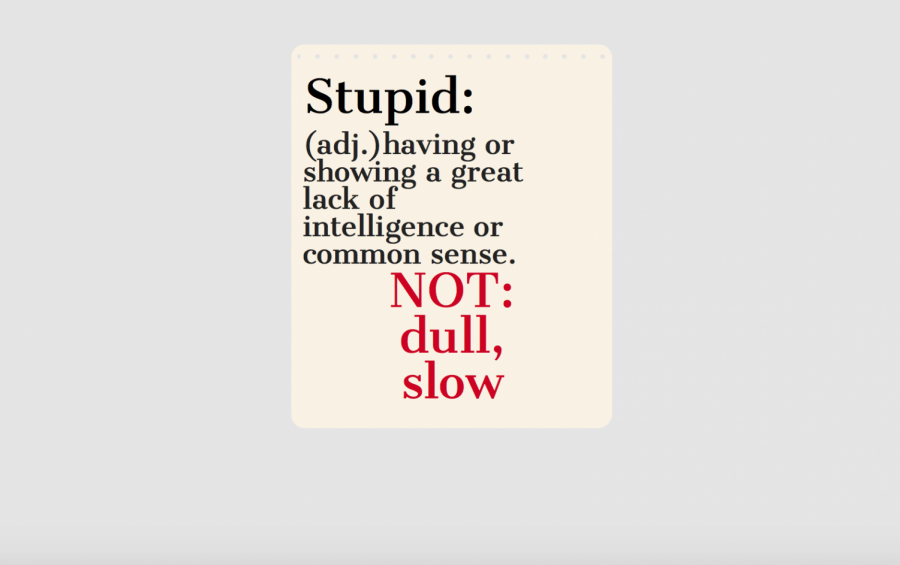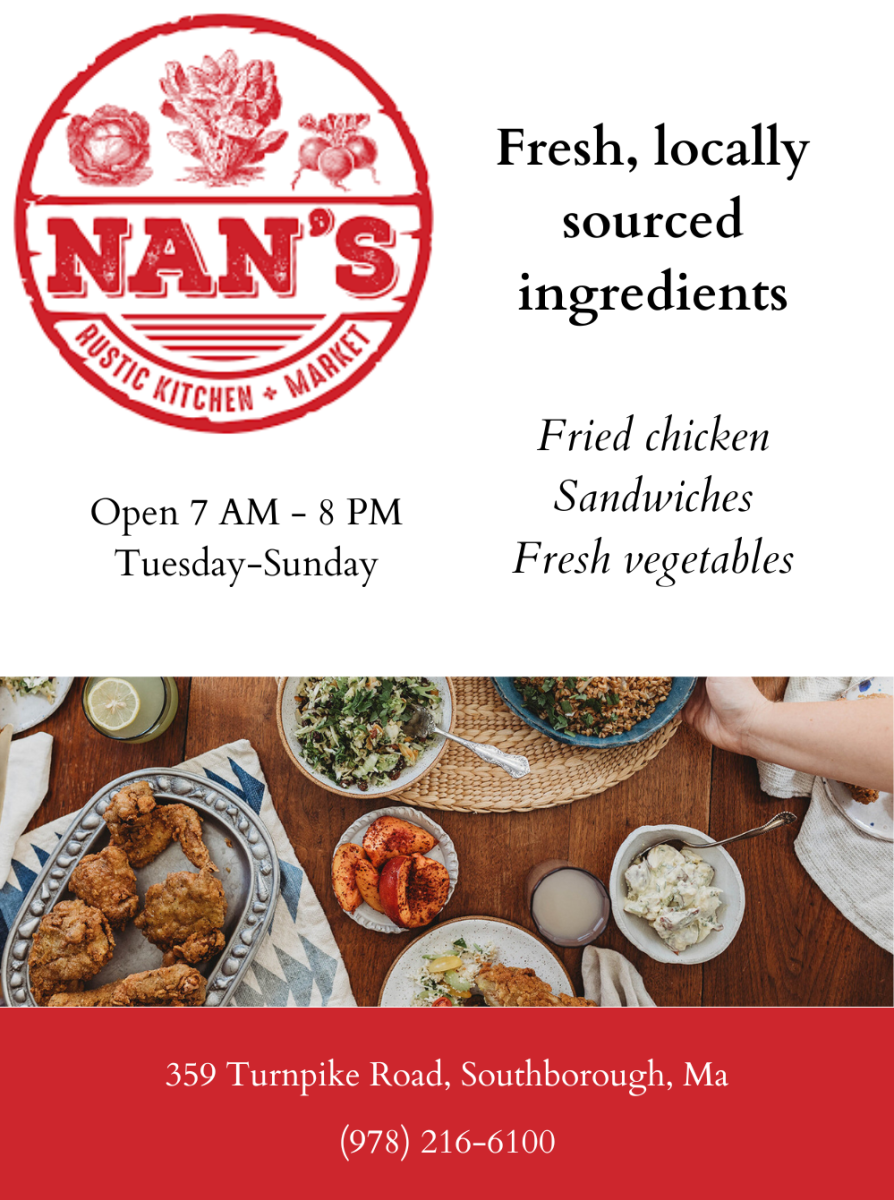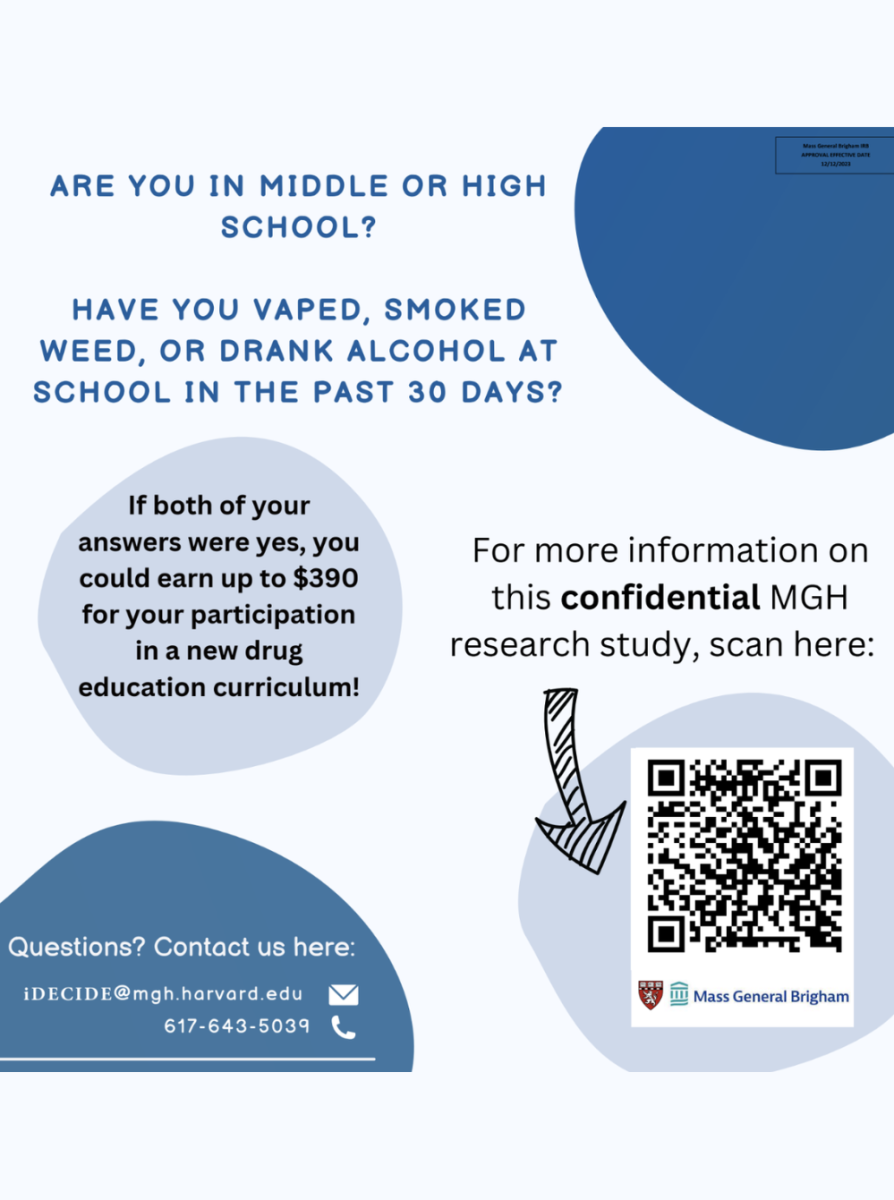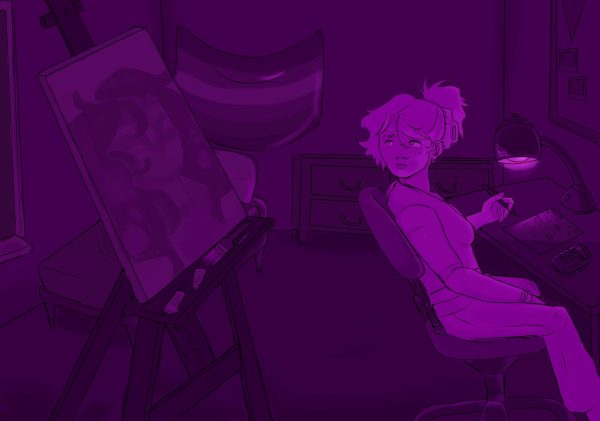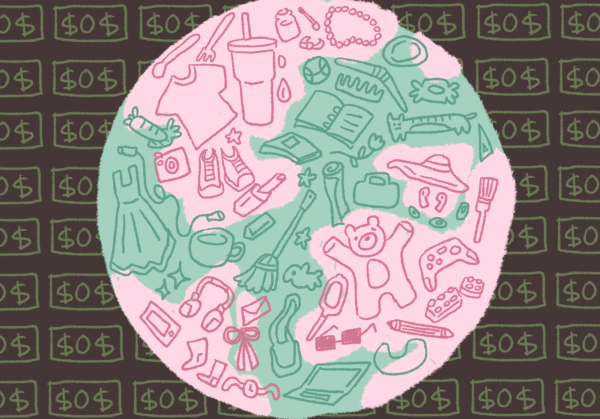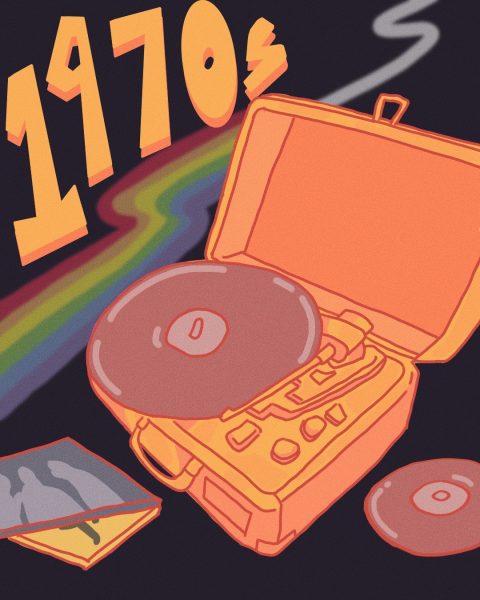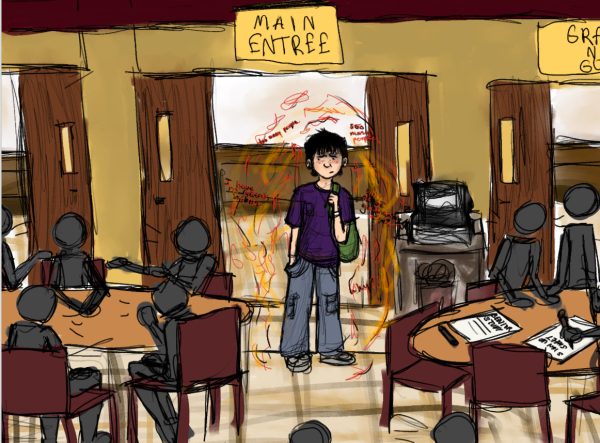Why words matter: People should be more careful with word choice
Assistant A&E Editor Caroline Warren writes that people should know the value their words carry.
June 8, 2018
“You’re a retard,” responded one boy in class.
“I swear my mom is bipolar; we always get into arguments over the smallest things,” gossiped one girl to her friends.
“I’m so OCD; my room always has to be clean,” explained one girl during lunch.
I’ve heard these exact phrases and many like them uttered every single day, wondering why people integrate these misused and often hurtful words into casual conversation. Oftentimes, people don’t realize the pain they’re inflicting.
Yes, decades ago, the “r-word” was the technical term for somebody with mental disabilities, but it’s long since been replaced with more socially acceptable expressions like “mentally disabled.” However, it’s not a synonym for “stupid,” “dumb,” or “slow” and shouldn’t be used as one. In the same way that racial slurs are offensive, this word should be treated with similar sensitivity.
Similarly, bipolar isn’t a synonym for moody, OCD doesn’t mean neat, and depressed doesn’t just mean sad. All mental illnesses have symptoms and characterizing aspects that separate them from being an illness and just a word.
Approximately one in five adolescents age 13-18 have a diagnosable mental illness that interferes with their daily life functions. Your friends and peers could be suffering and you’d never know. That’s why it’s crucial that people stop casually throwing around these terms because you never know if you’re hurting someone.
For example, bipolar disorder is a serious mental illness that’s characterized by extreme manic and depressive episodes. Studies have shown that its sufferers have a 15 percent rate of suicide, which is 30 times higher than that of the general population.
Using these words downplay the effect of mental illness and could offend those who suffer from them. They trivialize the struggles of mental illness because they misunderstand the symptoms and severity of their conditions.
These terms are not just words. For every person struggling with a mental illness, there is a meaning behind their diagnosis. Behind every term there’s the struggle, shame and pain behind these words.
Of course, the misuse of these words isn’t offensive to everybody, but every time you use these words you run the risk of hurting someone.
Instead of using these hurtful words in conversations, just choose your words more carefully and keep in mind that words have power. These words in particular have the power to hurt someone and make what they’re struggling with even harder.

